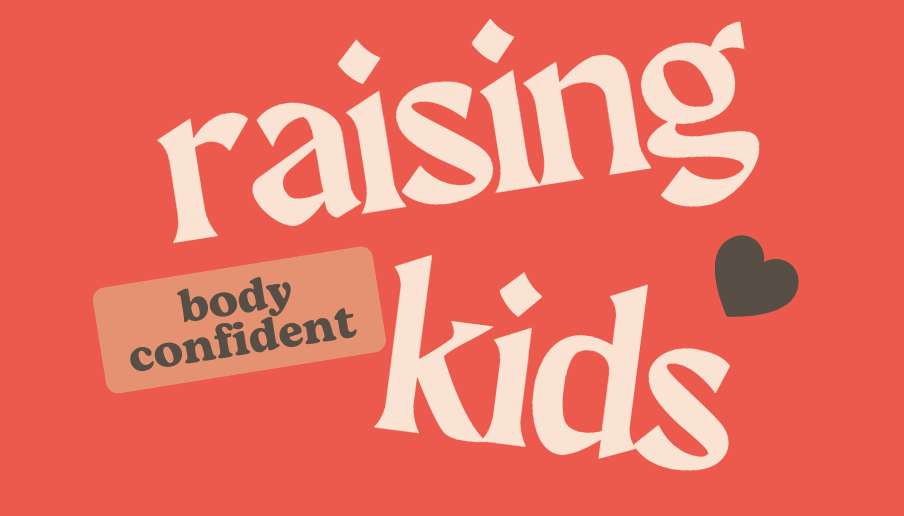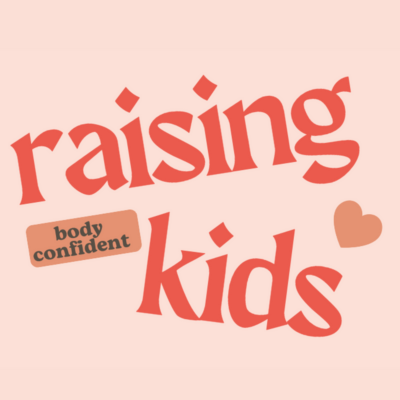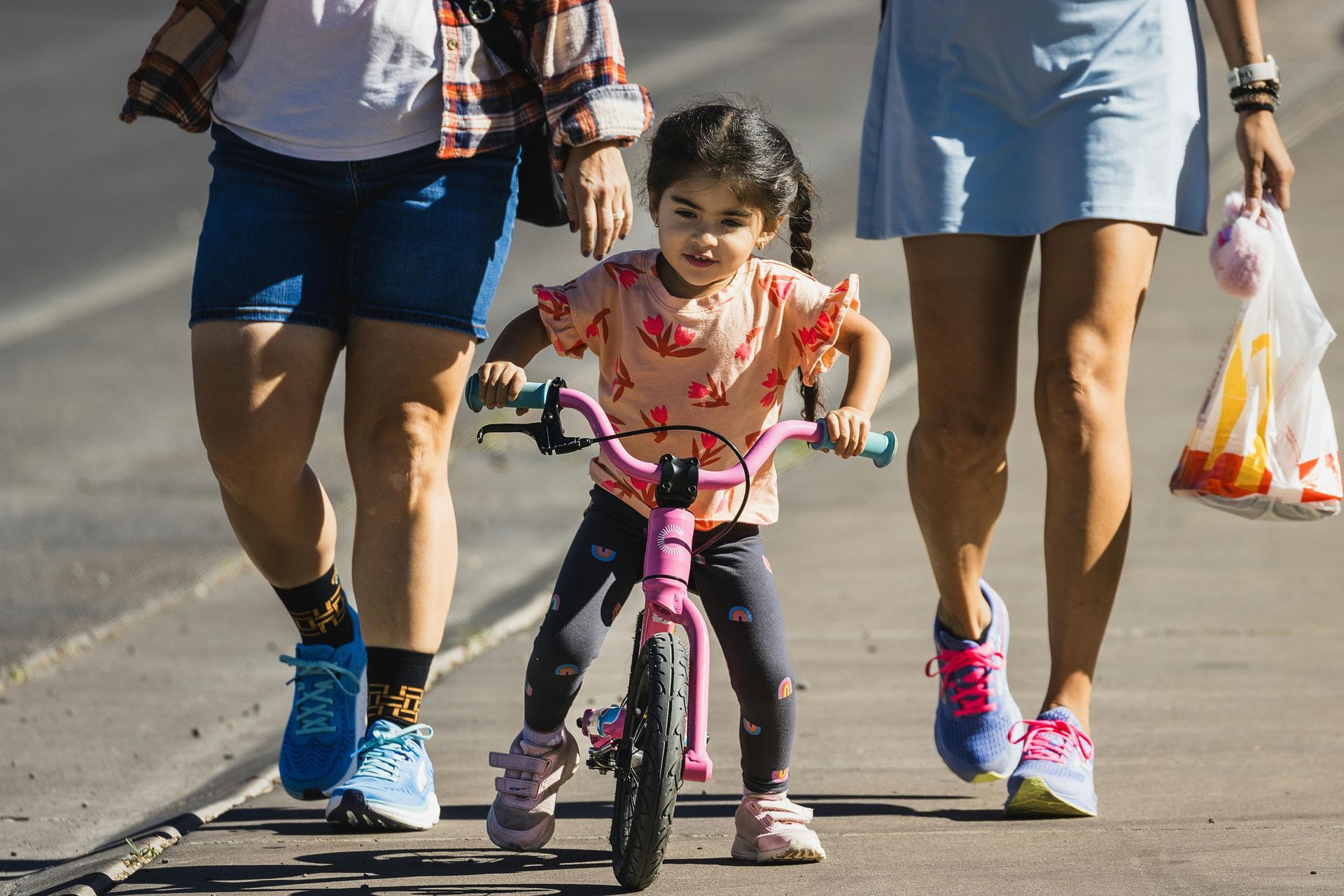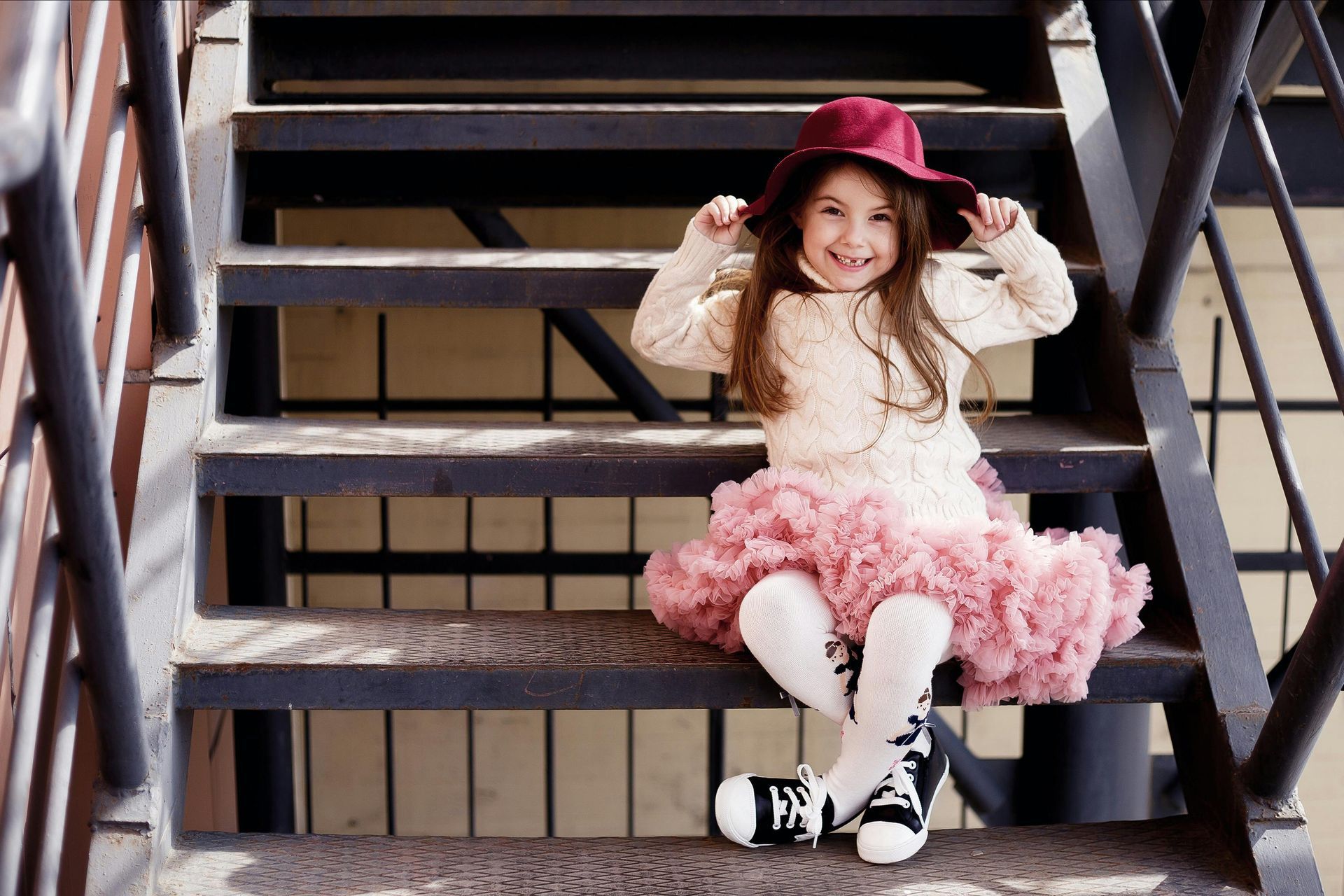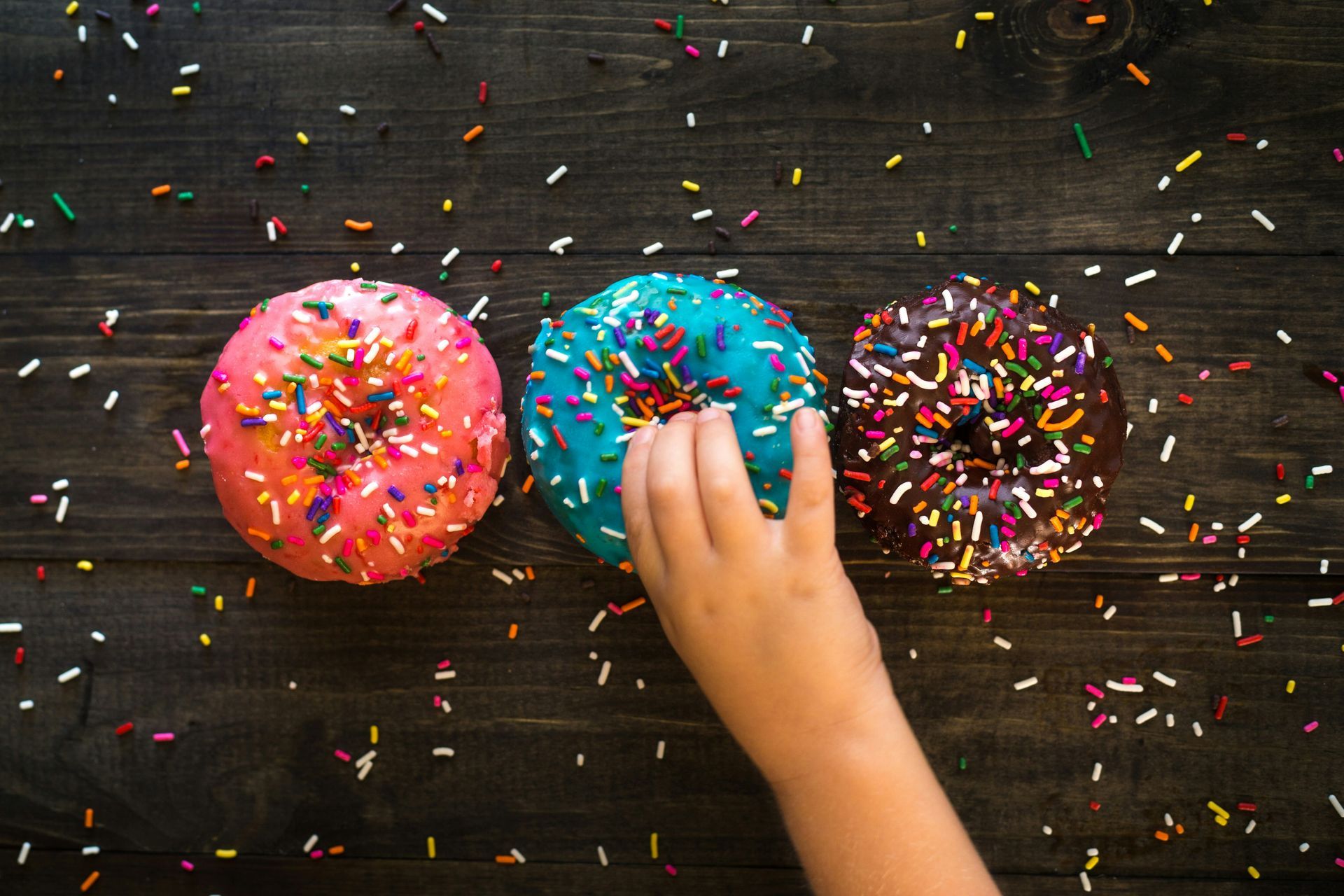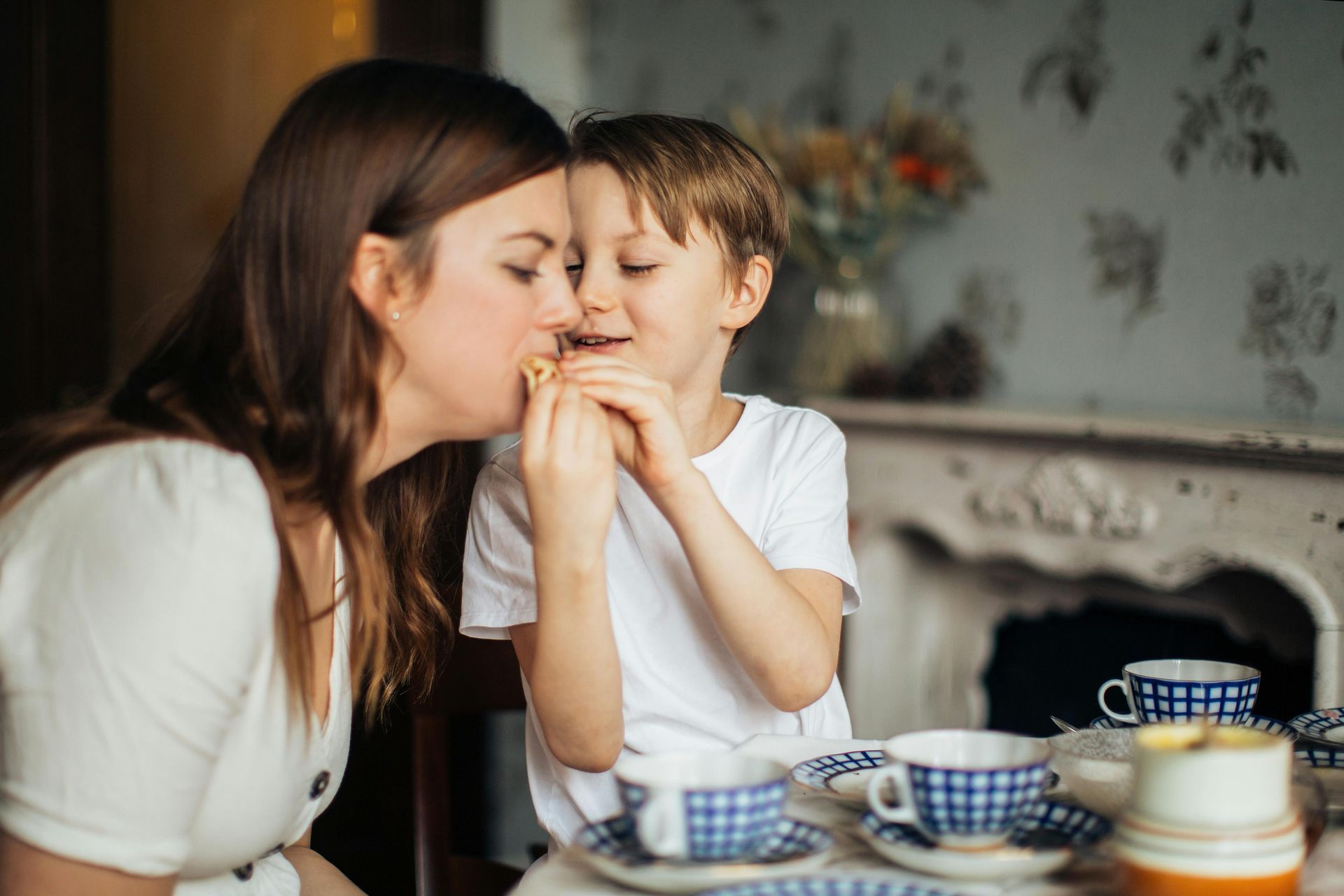YOUR KID WILL ASK ABOUT THEIR BODY. HERE'S HOW NOT TO BLOW IT.
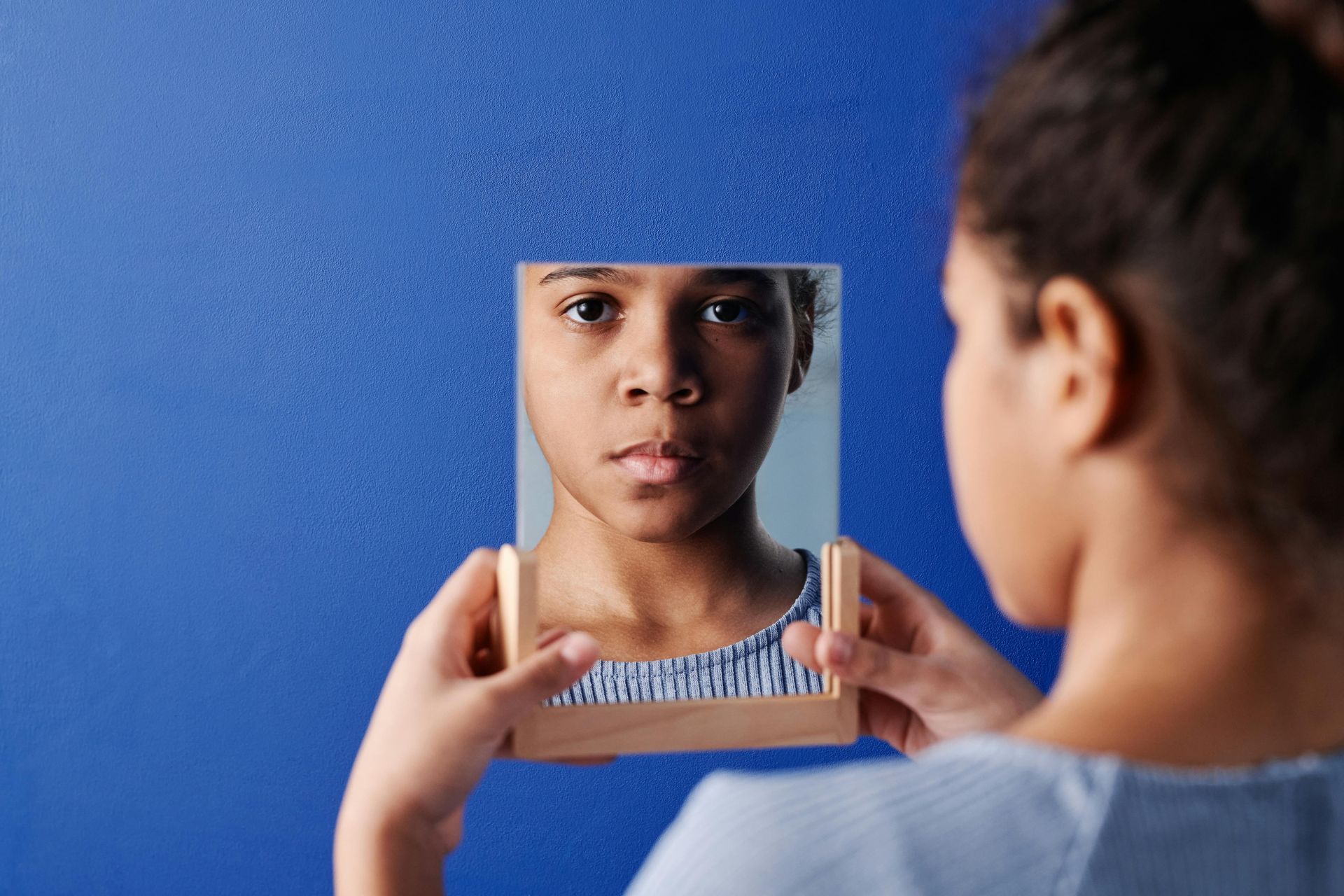
You’re halfway through cleaning up dinner—scraping plates, rinsing out lunchboxes, trying to convince yourself that folding laundry counts as self-care—when your child hits you with a question that instantly makes you freeze.
“Mom…am I fat?”
Cue the internal panic. Your brain scrambles. Maybe you stammer out a hasty, “Of course not!” or pivot to, “You’re beautiful just the way you are.” Maybe you ignore it altogether and hope they never bring it up again. But somewhere inside, you know: this is a big moment. And what you say next? It matters. A lot.
Why That Question Feels So Loaded
The word “fat” holds a ton of weight in our culture—and not because it’s medically meaningful (spoiler: it’s not). It’s because we’ve been conditioned, often without realizing it, to associate fatness with failure, shame, and moral weakness. It’s a word we’ve been taught to fear. So when our kids ask it out loud, it feels like an alarm bell going off. But here’s what’s really happening: your child is trying to make sense of the world around them. They’re noticing bodies. They’re listening to what’s said (and what’s not said) about different shapes and sizes. And they’re looking to you, their safe person, to help them interpret it all. So let’s take a deep breath together and break this down. What your child doesn’t need is a perfect, rehearsed speech. They need honesty, clarity, and calm. They need to know that they can come to you with uncomfortable questions—and that you’ll meet them with curiosity, not shame.
Start Here: Ask What They Really Mean
Instead of rushing in to reassure or correct, try slowing down and asking,
“What made you ask that?”
That one question is powerful. It tells your child: This is a safe topic. You’re not in trouble. I want to understand. Maybe someone made a comment at school. Maybe they saw a weight loss ad on YouTube. Maybe they’re navigating the confusing early days of puberty and just trying to make sense of what’s happening to their body. Or maybe it’s as simple as a classmate saying, “You’ve got a belly,” and your child wondering if that’s…bad? Asking “what made you ask?” gives you insight into what’s really going on—and gives your child the chance to feel heard.
What Not to Say (Even Though It’s So Tempting)
We all want to protect our kids from pain. But when we dismiss, deflect, or sugarcoat conversations about weight and body image, we can unintentionally reinforce the very messages we’re trying to undo. Let’s look at a few common responses that seem helpful but actually do more harm than good:
“No! You’re beautiful.”
This reinforces the idea that being “fat” and being “beautiful” are mutually exclusive—and that the goal is to be one, not the other.
“Don’t say that!”
Shuts down the conversation and sends the message that talking about bodies is off-limits or shameful.
“You’re not fat—you’re strong!”
Sounds empowering, but it implies fatness is weak or undesirable, and that strength is only valuable as a contrast to it.
These phrases don’t make you a bad parent. They make you a human raised in the same culture your kid is trying to decode. But we can do better—especially now that we know more.
What To Say Instead
After you ask what made them bring it up and really listen to their answer, you can start to respond with language that’s grounded in truth, science, and compassion. Try something like:
“Bodies come in all shapes and sizes—and all of them are good.”
This is a foundational truth your child needs to hear often, especially in a world that won’t say it nearly enough.
Or:
“Your body is strong, capable, and uniquely yours. Let’s think about what it helps you do every day.”
This helps shift the focus from appearance to function. It reminds them that their body isn’t for looking at—it’s for living in.
You might also say:
“It’s totally okay to have questions about your body. You’re growing, and your body’s going to change a lot. I’m here for every part of that.”
That one sentence sends a clear message: You can come to me with anything. And that? That’s gold.
And if you’re brave enough to go there—and I think you are—try this:
“I’ve had thoughts like that, too. A lot of adults do. And I’m working on being kind to myself, just like I want you to be kind to you.”
You don’t have to turn it into a therapy session. But naming your own unlearning process models that body image is a journey—and that it’s okay to still be learning.
Why This Conversation Is Worth Having (Even If It’s Awkward)
When kids ask questions like “Am I fat?”, they’re not just looking for an answer. They’re looking for reassurance. For belonging. For the message that they are okay—exactly as they are. When we respond with calm, curious, shame-free honesty, we give them a way to start seeing their bodies through a different lens: not as problems to fix, but as homes to care for. We give them language for self-acceptance. And maybe, just maybe, we start rewriting the script that’s been playing in our heads since we were their age. This isn’t about getting it perfect. It’s about being intentional. Being present. And being the kind of parent who shows up for the hard conversations because you know your kid is worth it.
Try This: A “Body Words” Activity You Can Do Together
This week, set aside 10 minutes—maybe during snack time or after a walk—and ask your child:
“What are some words you’ve heard people use to describe bodies?”
Write them down. Include the kind ones, the weird ones, and even the unkind ones. Don’t overreact—just take note. Then ask:
“How do those words make you feel?”
“Which ones feel kind? Which ones feel hurtful?”
“What could we say instead?”
Finally, create a list of your own words to describe bodies—words that focus on function, identity, and feelings. Things like strong, helpful, fast, brave, caring, creative, flexible, unique. Let that list live somewhere visible—in a notebook, taped to a mirror, tucked in a lunchbox. Let it grow. Let it change. Let it remind your child (and you) that how we talk about bodies shapes how we feel in them.
Want more support with what to say when your kid asks tough questions about food, weight, or their body?
You don’t have to go it alone. Download our free 5 Phrases That Hurt (and Help) Kids' Body Image—packed with scripts, tools, and practical strategies for raising body-literate, self-loving kids.
You’ve got this. And your kid? They’ve got you. 💛
You’re halfway through cleaning up dinner—scraping plates, rinsing out lunchboxes, trying to convince yourself that folding laundry counts as self-care—when your child hits you with a question that instantly makes you freeze.
“Mom…am I fat?”
Cue the internal panic. Your brain scrambles. Maybe you stammer out a hasty, “Of course not!” or pivot to, “You’re beautiful just the way you are.” Maybe you ignore it altogether and hope they never bring it up again. But somewhere inside, you know: this is a big moment. And what you say next? It matters. A lot.
Why That Question Feels So Loaded
The word “fat” holds a ton of weight in our culture—and not because it’s medically meaningful (spoiler: it’s not). It’s because we’ve been conditioned, often without realizing it, to associate fatness with failure, shame, and moral weakness. It’s a word we’ve been taught to fear. So when our kids ask it out loud, it feels like an alarm bell going off. But here’s what’s really happening: your child is trying to make sense of the world around them. They’re noticing bodies. They’re listening to what’s said (and what’s not said) about different shapes and sizes. And they’re looking to you, their safe person, to help them interpret it all. So let’s take a deep breath together and break this down. What your child doesn’t need is a perfect, rehearsed speech. They need honesty, clarity, and calm. They need to know that they can come to you with uncomfortable questions—and that you’ll meet them with curiosity, not shame.
Start Here: Ask What They Really Mean
Instead of rushing in to reassure or correct, try slowing down and asking,
“What made you ask that?”
That one question is powerful. It tells your child: This is a safe topic. You’re not in trouble. I want to understand. Maybe someone made a comment at school. Maybe they saw a weight loss ad on YouTube. Maybe they’re navigating the confusing early days of puberty and just trying to make sense of what’s happening to their body. Or maybe it’s as simple as a classmate saying, “You’ve got a belly,” and your child wondering if that’s…bad? Asking “what made you ask?” gives you insight into what’s really going on—and gives your child the chance to feel heard.
What Not to Say (Even Though It’s So Tempting)
We all want to protect our kids from pain. But when we dismiss, deflect, or sugarcoat conversations about weight and body image, we can unintentionally reinforce the very messages we’re trying to undo. Let’s look at a few common responses that seem helpful but actually do more harm than good:
“No! You’re beautiful.”
This reinforces the idea that being “fat” and being “beautiful” are mutually exclusive—and that the goal is to be one, not the other.
“Don’t say that!”
Shuts down the conversation and sends the message that talking about bodies is off-limits or shameful.
“You’re not fat—you’re strong!”
Sounds empowering, but it implies fatness is weak or undesirable, and that strength is only valuable as a contrast to it.
These phrases don’t make you a bad parent. They make you a human raised in the same culture your kid is trying to decode. But we can do better—especially now that we know more.
What To Say Instead
After you ask what made them bring it up and really listen to their answer, you can start to respond with language that’s grounded in truth, science, and compassion. Try something like:
“Bodies come in all shapes and sizes—and all of them are good.”
This is a foundational truth your child needs to hear often, especially in a world that won’t say it nearly enough.
Or:
“Your body is strong, capable, and uniquely yours. Let’s think about what it helps you do every day.”
This helps shift the focus from appearance to function. It reminds them that their body isn’t for looking at—it’s for living in.
You might also say:
“It’s totally okay to have questions about your body. You’re growing, and your body’s going to change a lot. I’m here for every part of that.”
That one sentence sends a clear message: You can come to me with anything. And that? That’s gold.
And if you’re brave enough to go there—and I think you are—try this:
“I’ve had thoughts like that, too. A lot of adults do. And I’m working on being kind to myself, just like I want you to be kind to you.”
You don’t have to turn it into a therapy session. But naming your own unlearning process models that body image is a journey—and that it’s okay to still be learning.
Why This Conversation Is Worth Having (Even If It’s Awkward)
When kids ask questions like “Am I fat?”, they’re not just looking for an answer. They’re looking for reassurance. For belonging. For the message that they are okay—exactly as they are. When we respond with calm, curious, shame-free honesty, we give them a way to start seeing their bodies through a different lens: not as problems to fix, but as homes to care for. We give them language for self-acceptance. And maybe, just maybe, we start rewriting the script that’s been playing in our heads since we were their age. This isn’t about getting it perfect. It’s about being intentional. Being present. And being the kind of parent who shows up for the hard conversations because you know your kid is worth it.
Try This: A “Body Words” Activity You Can Do Together
This week, set aside 10 minutes—maybe during snack time or after a walk—and ask your child:
“What are some words you’ve heard people use to describe bodies?”
Write them down. Include the kind ones, the weird ones, and even the unkind ones. Don’t overreact—just take note. Then ask:
“How do those words make you feel?”
“Which ones feel kind? Which ones feel hurtful?”
“What could we say instead?”
Finally, create a list of your own words to describe bodies—words that focus on function, identity, and feelings. Things like strong, helpful, fast, brave, caring, creative, flexible, unique. Let that list live somewhere visible—in a notebook, taped to a mirror, tucked in a lunchbox. Let it grow. Let it change. Let it remind your child (and you) that how we talk about bodies shapes how we feel in them.
Want more support with what to say when your kid asks tough questions about food, weight, or their body?
You don’t have to go it alone. Download our free 5 Phrases That Hurt (and Help) Kids' Body Image—packed with scripts, tools, and practical strategies for raising body-literate, self-loving kids.
You’ve got this. And your kid? They’ve got you. 💛
